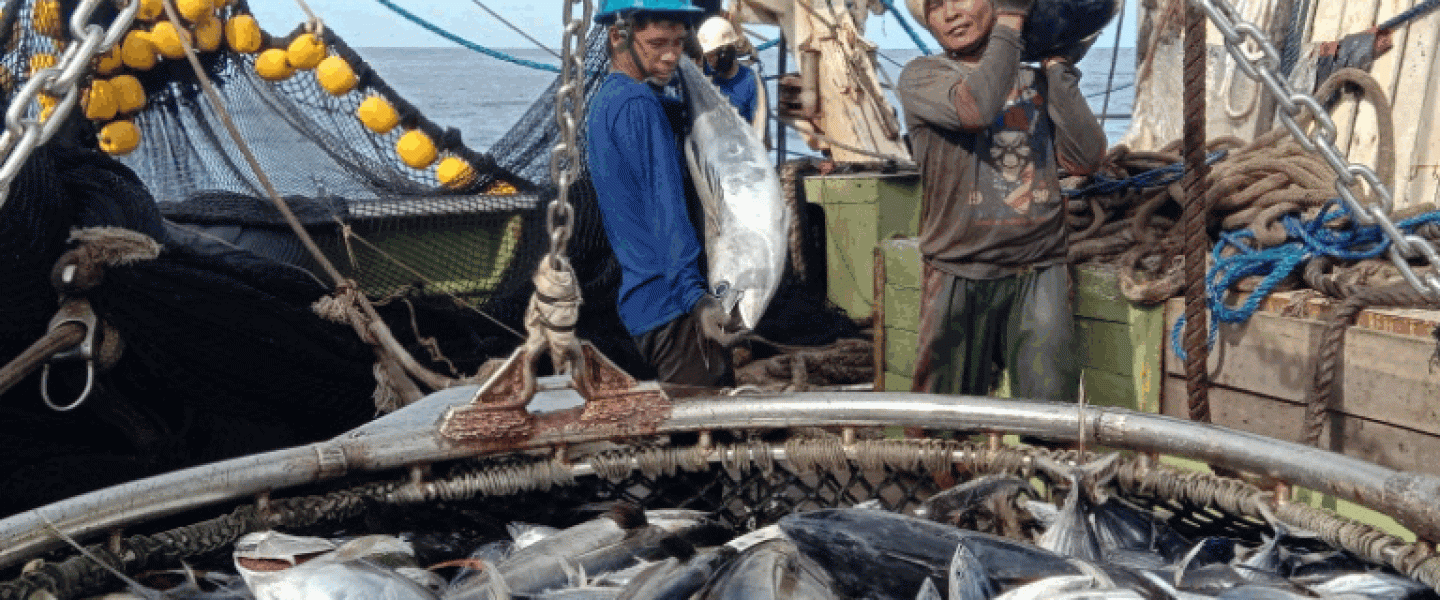The Fishing Industry Association of Papua New Guinea (FIA PNG) has responded to Human Rights at Sea’s International Fisheries and Aquaculture Certifications, Standards and Ratings Ecosystem Questionnaire 1.0.
In a detailed response, FIA PNG has outlined how its Responsible Sourcing Policy (RSP) deals with abuses of fishers’ labour, social, and human rights. This response will help to inform HRAS’s wider Fisheries and Aquaculture Certification, Standards, and Ratings Review 2.0.
Hybrid Certification
The RSP is best described as a ‘hybrid’ certification. According to the questionnaire response, ‘FIA PNG is not a fisheries certification and not a Crew / Social accountability certification program.’
Instead, it prescribes and audits best practice aboard fishing vessels, but also appears to require external auditing and certification by the Marine Stewardship Council (MSC), the Fairness, Integrity, Safety, And Health (FISH) Standard For Crew, and the Global Seafood Alliance’s Responsible Fishing Vessel Standard (RFVS). HRAS has separately engaged with each of these scheme owners as it develops Version 2.0 of the Review.
No Abuses Reported
FIA PNG reports that its Responsible Sourcing Policy has uncovered no cases of child, forced, or compulsory labour, nor any human rights abuses.
Whilst HRAS welcomes this news, it notes that a lack of reported cases should not be taken as an automatic clean bill of health. Reporting and actual activity may be two different matters.
Human Rights at Sea Comment
HRAS welcomes FIA PNG’s detailed response to the questionnaire. FIA PNG has provided numerous helpful links to associated documentation. This is a good example of transparency and accountability, and which aligns with most scheme owners that have engaged with HRAS.
HRAS welcomes FIA PNG highlighting of their advocacy at the WCPFC (Western and Central Pacific Fisheries Commission) workshop and Tuna Bangkok Conference for cases where fishers have not been paid. Moreover, FIA PNG’s ‘Integrated Fisheries Management System, a real-time traceability platform [which collects] more than 60 Key Data Elements (KDE)’, is another example of voluntary public accountability.
However, HRAS remains unclear about the exact relationship between the RSP and third-party certification scheme owners, such as the MSC and the FISH Standard. Moreover, it is unclear whether the Association is audited by certification bodies, or each individual company and vessel within the Association is audited separately.
As FIA PNG’s website shows, only 14 out of 55 vessels within the Association are certified under the Responsible Fishing Vessel Standard. Similarly, only 33 out of 55 vessels are certified by the FISH Standard For Crew. This is despite the website highlighting that all vessels are signatories to the Responsible Sourcing Policy.
HRAS will continue to engage fairly and openly with FIA PNG to understand and, if needed, rectify these issues.
ENDS.
Contact: If you have any questions, please write to us at enquiries@humanrightsatsea.org
About Sharing. We welcome the use and dissemination of our work with proper accreditation. Please ensure that our Terms of Use are conformed with at all times.
